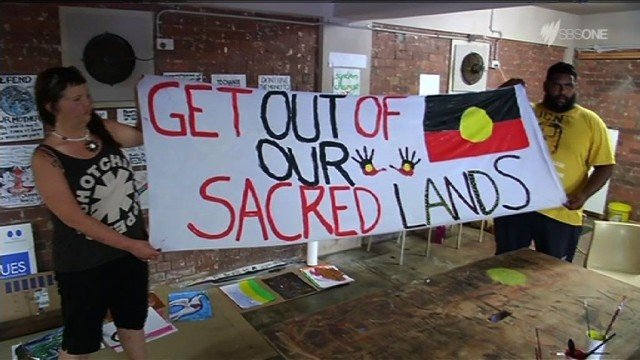Issues surrounding this relationship continue to be relevant in modern Australia, as Indigenous Australia has a continuing spiritual, physical, social and cultural connection to the land, which has obvious differences between contemporary Australian statehood.

These differences manifest themselves through the political struggles of Aboriginal activists such as Boe Spearim and Callum Clayton-Dixon, who recently re-entered Australia from overseas travel using Aboriginal passports as a rejection of Australian citizenship and as a way of campaigning for Aboriginal sovereignty. This example is one of many that highlight the unresolved conflict between the traditional indigenous connection to the land and the modern Australian state. In an article written by Aboriginal sovereignty activist Robbie Thorpe, he highlights the troubled relationship between modern tenancy law and Indigenous land rights, stating that:
"the destruction of our land also represents the destruction of Aboriginal people. That can be seen right across the face of this planet. You even have indigenous people destroying their own lands now, to enable themselves to survive. It's an absolute tragedy that this is happening. Where the land is destroyed, so are the Indigenous people. I also see the law, as it is today as the single most destructive thing in the Australian environment."

The celebration of Australia day, which marks the arrival of the first fleet of British ships into Australia, and the beginning of colonization is another potent example of this conflict. Critics have suggested a more fitting name for the celebration would be “Invasion Day” and each year see's the occasion met with Indigenous people and their supporters protesting against the celebrations. The conflict between the patriotism of mainstream Australia celebrating their love for their country and Indigenous Australians campaigning for recognition is a striking demonstration of the relevance of Indigenous peoples struggle in modern times.

Indigenous Political Hip Hop from Australia https://provocalz.bandcamp.com/track/stand-strong-ft-darah-boe-spearim